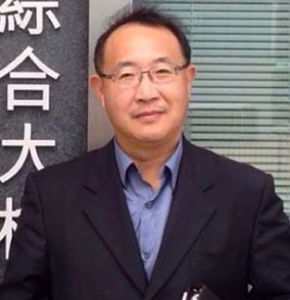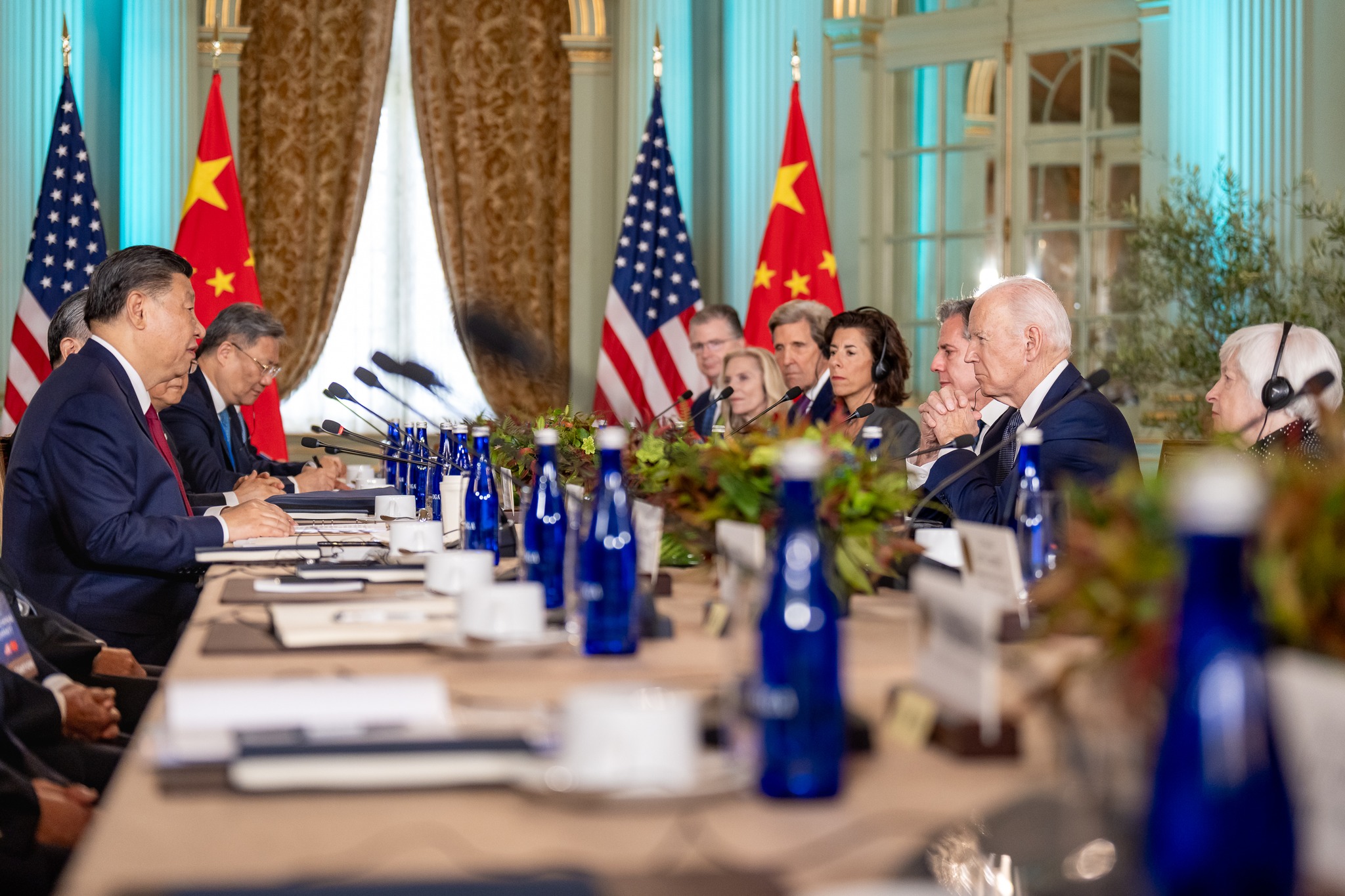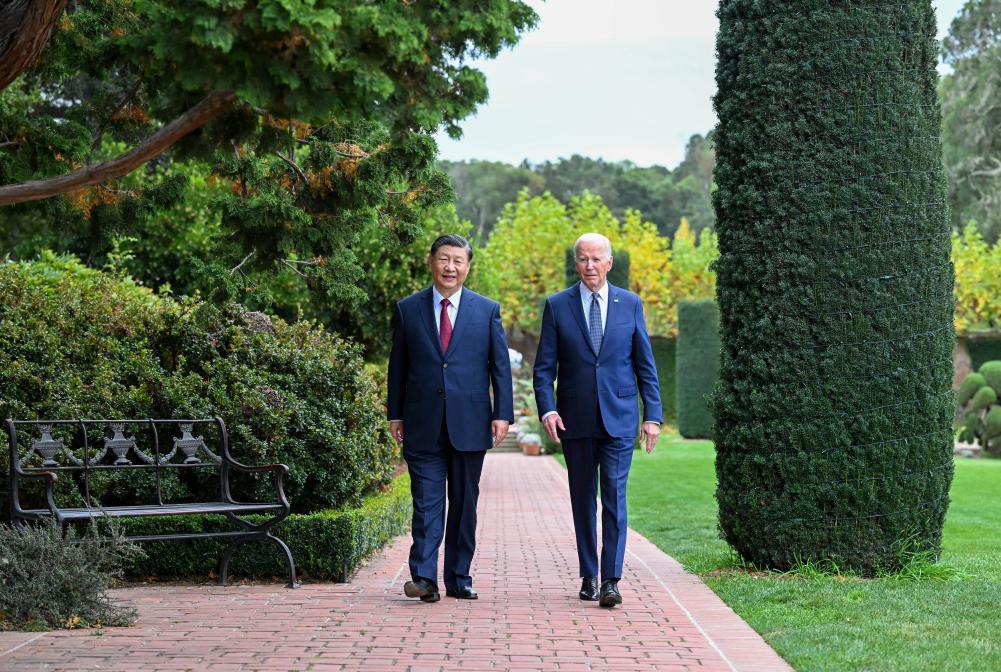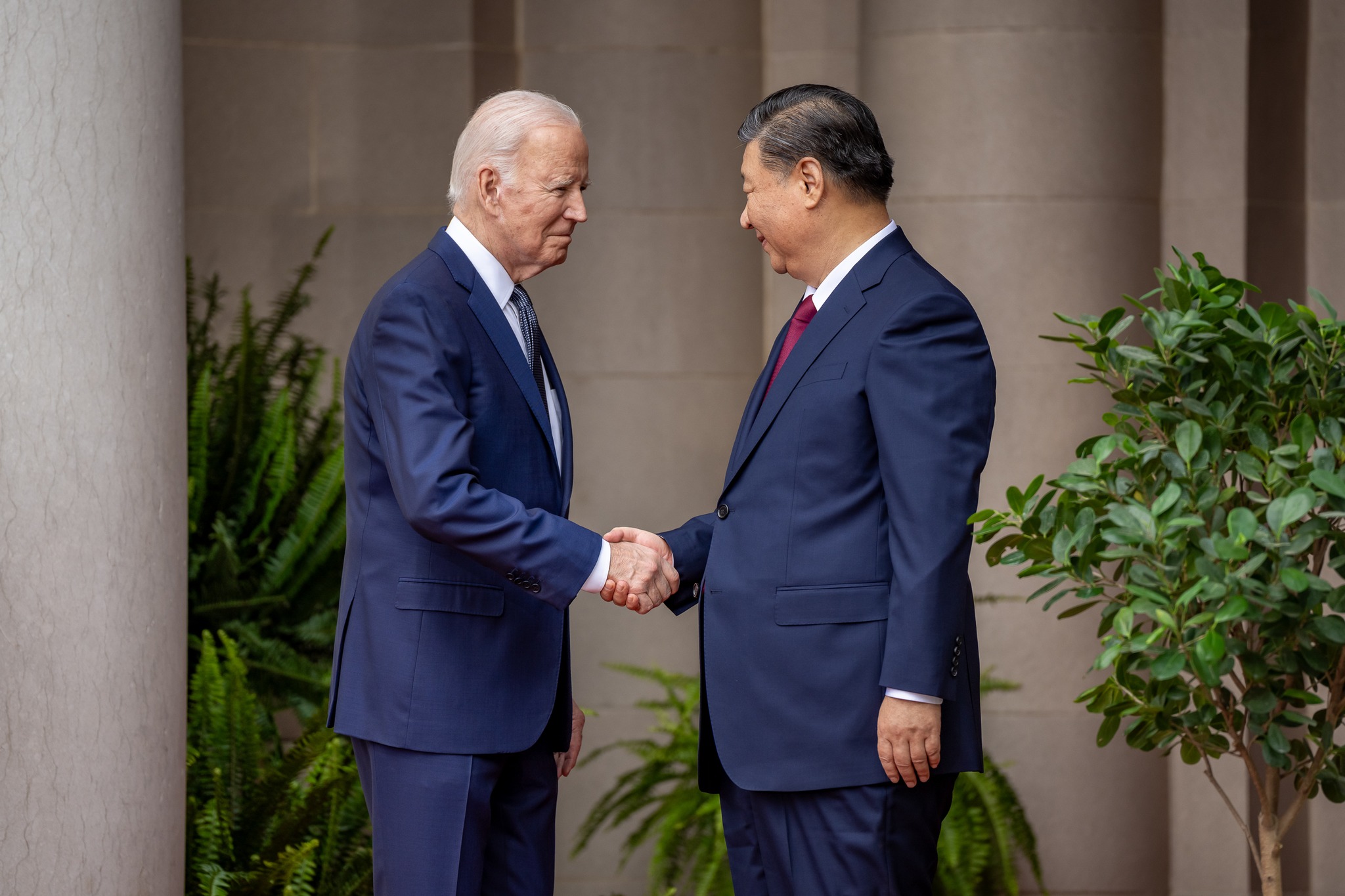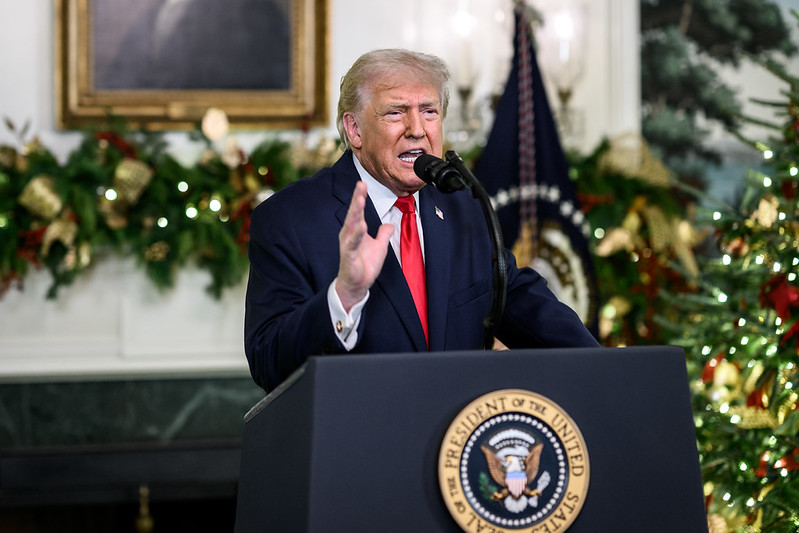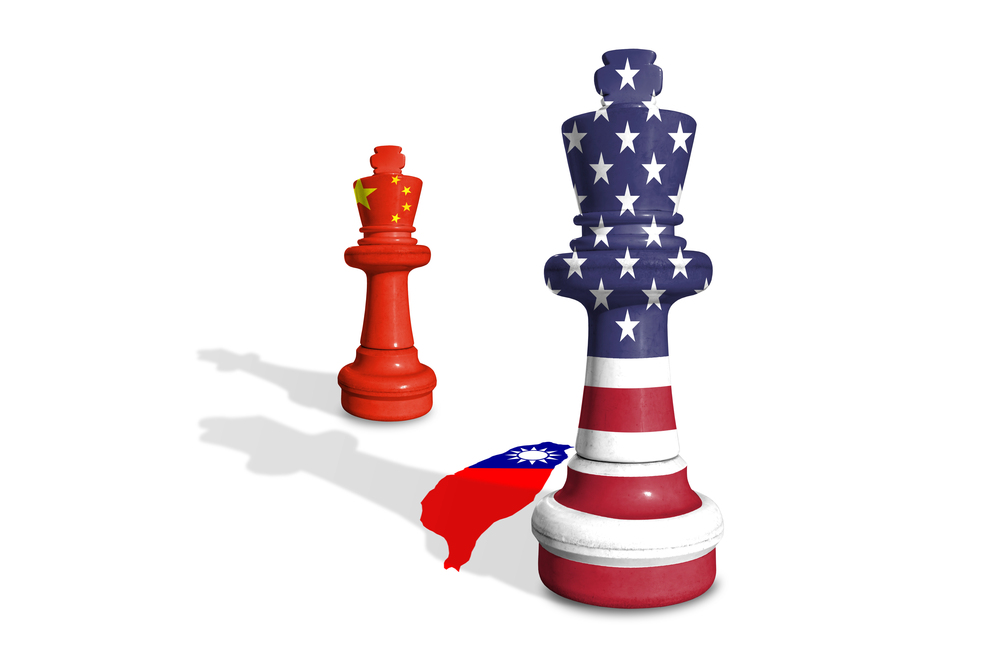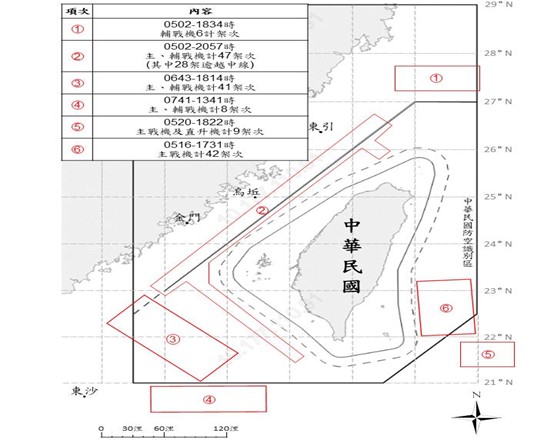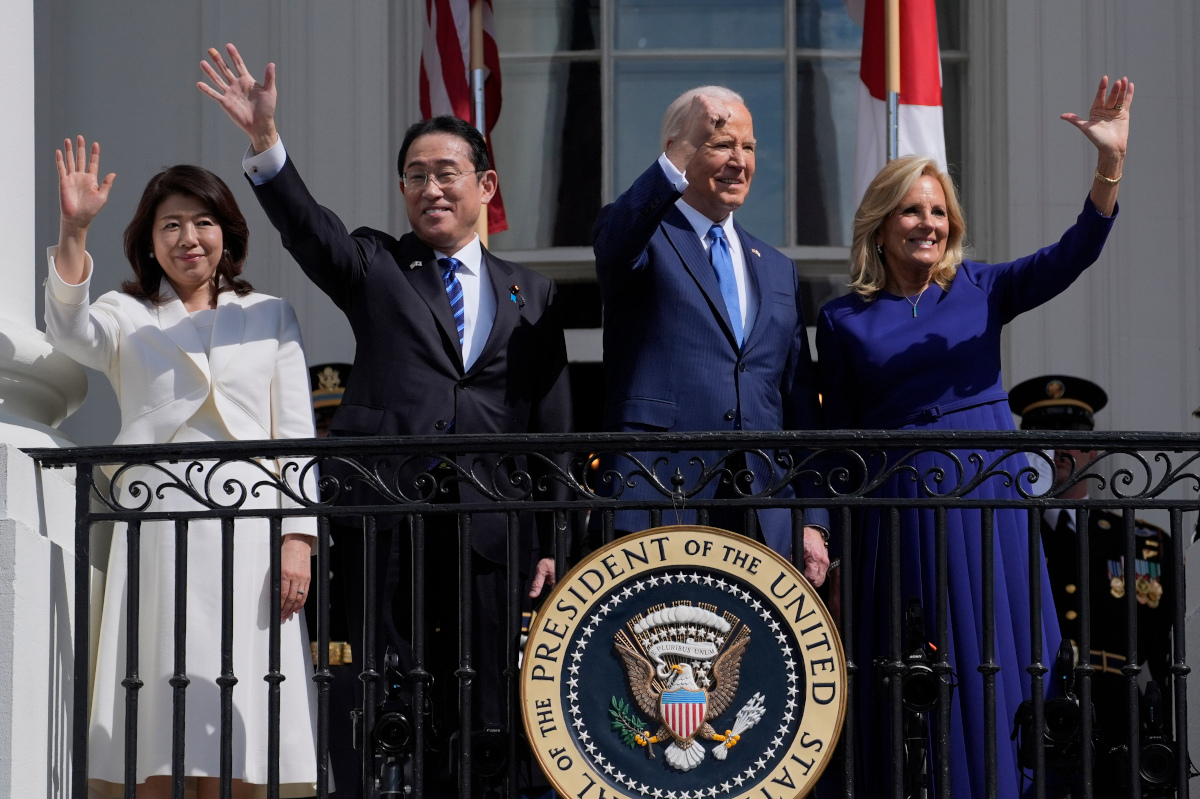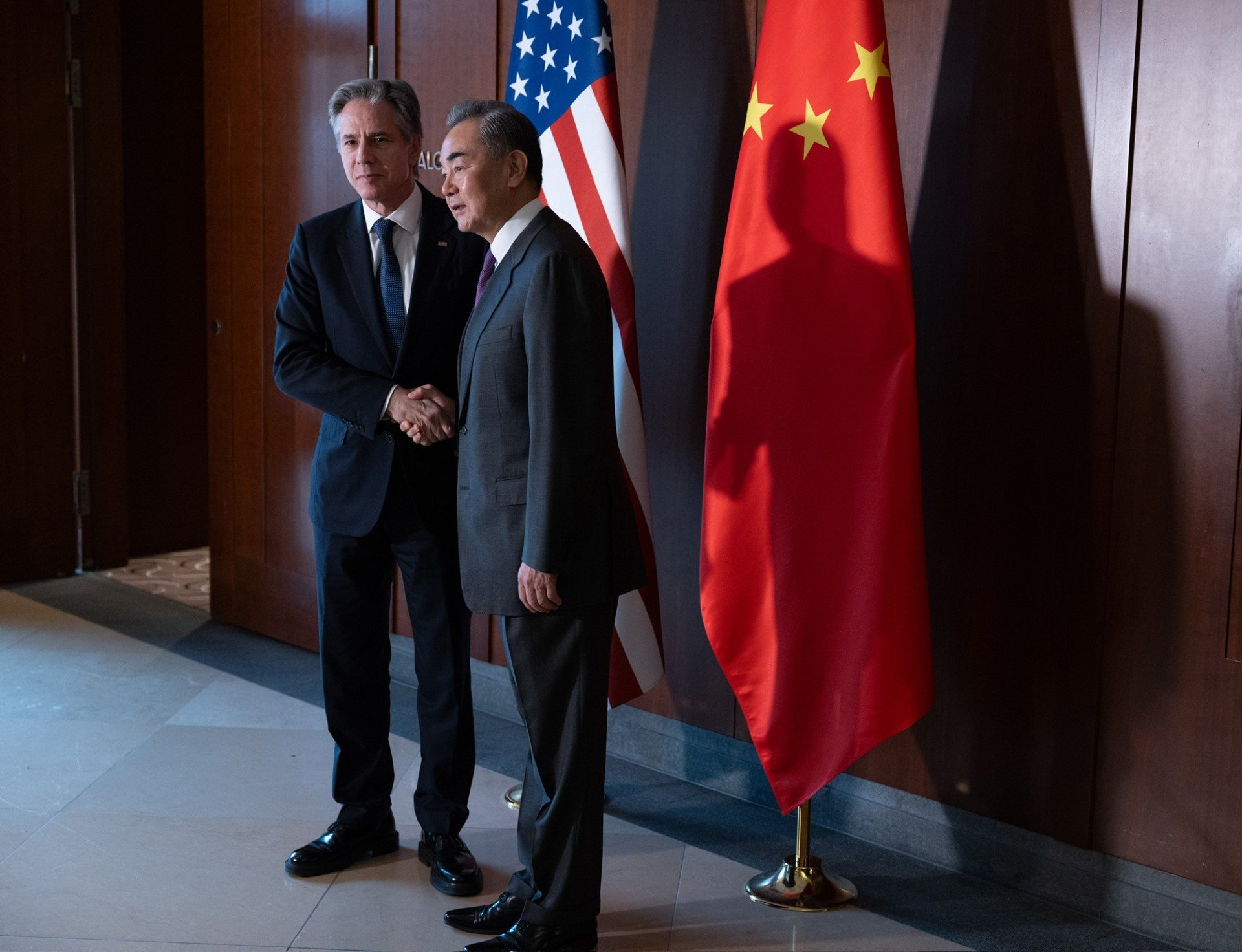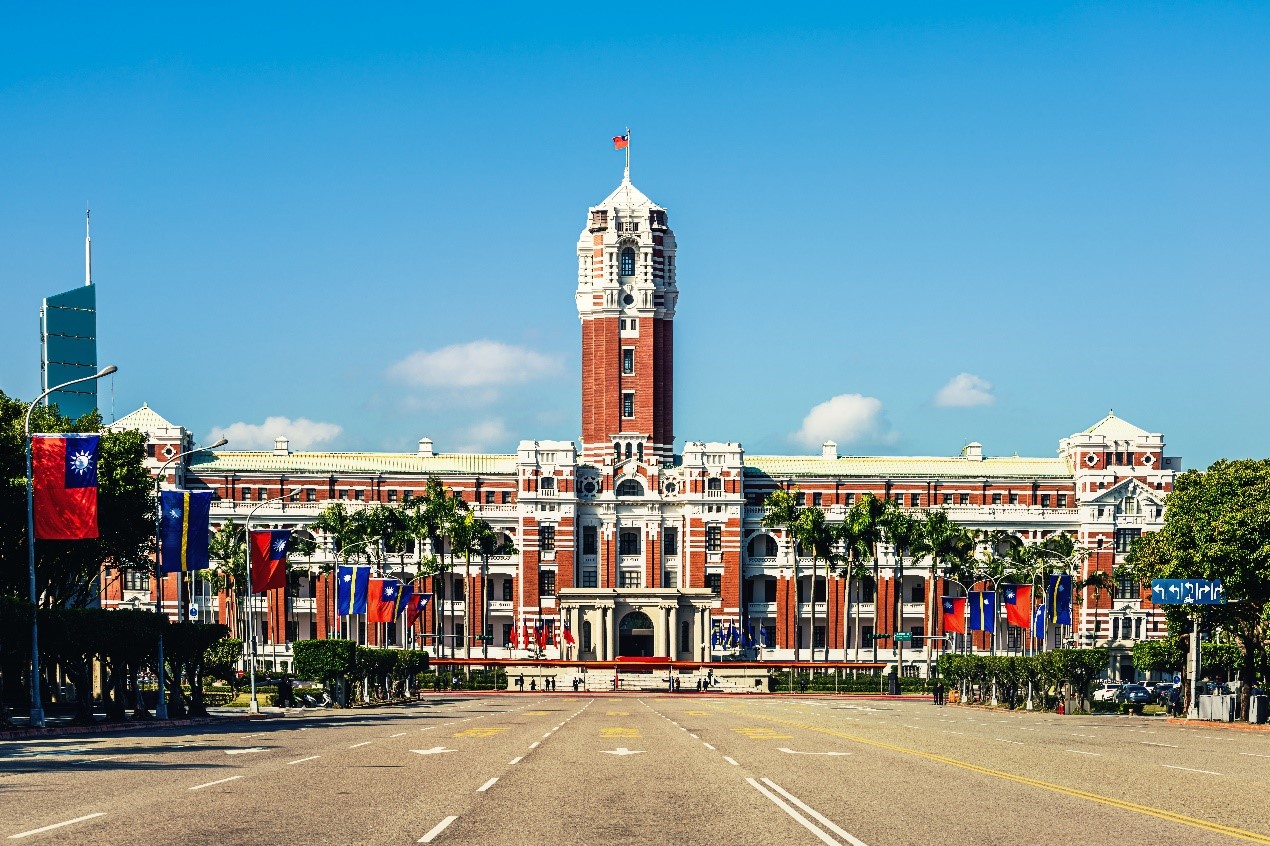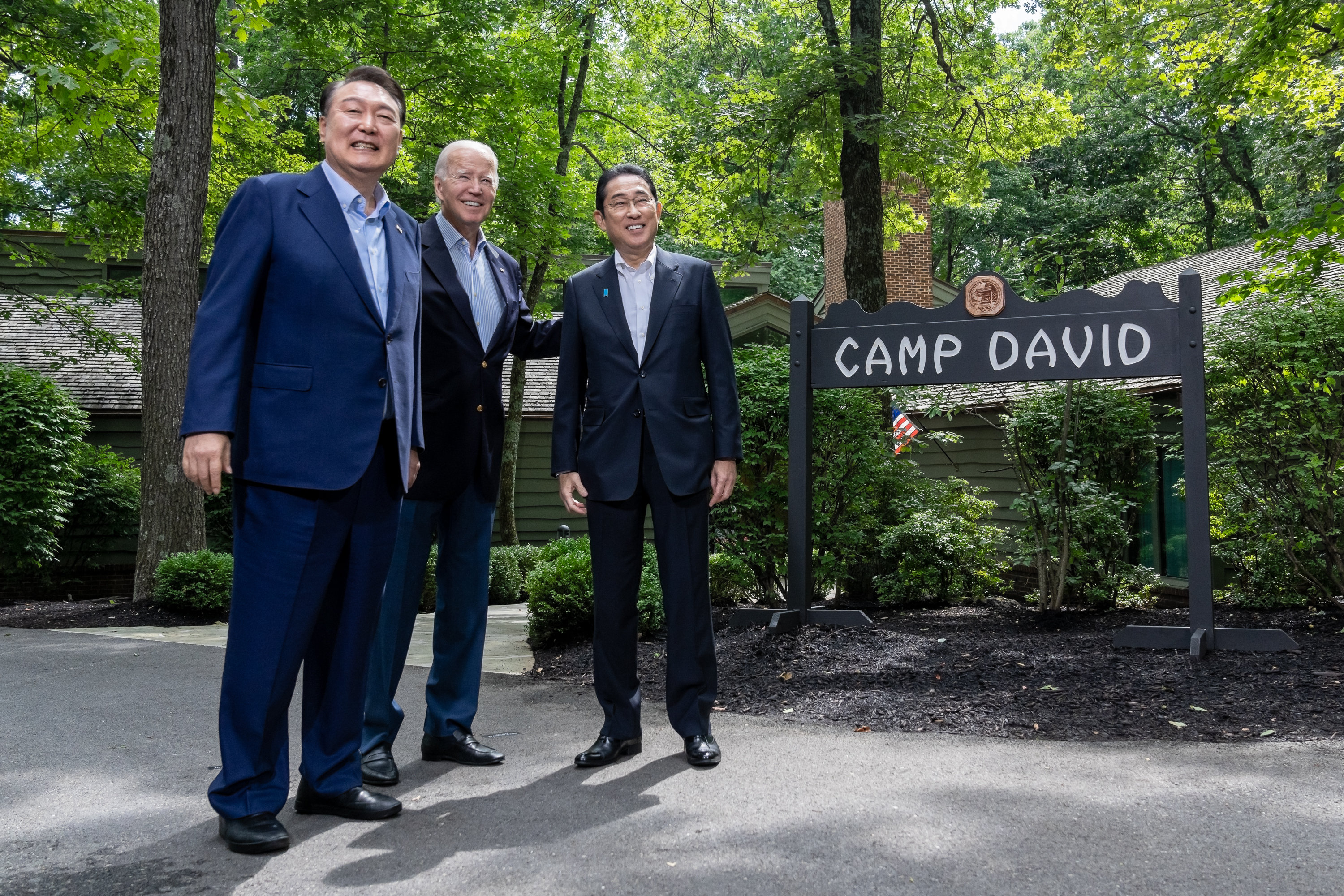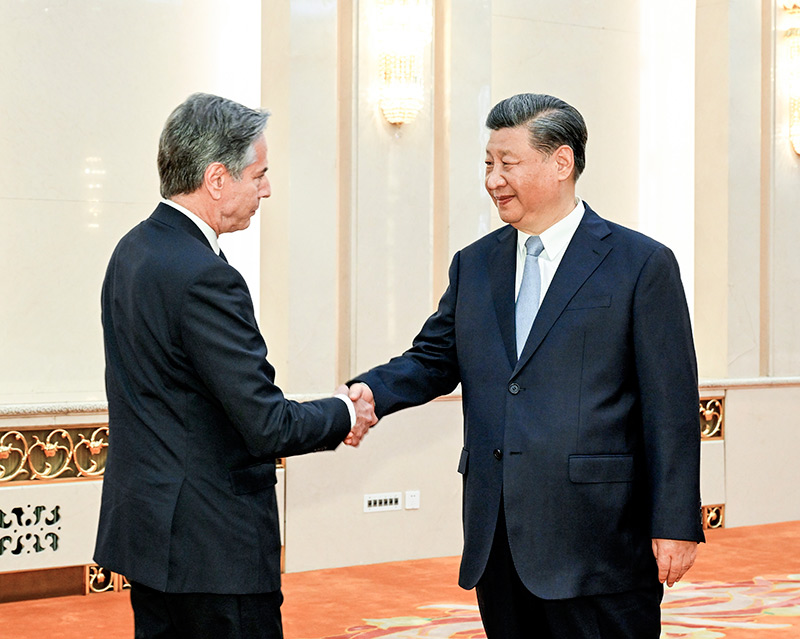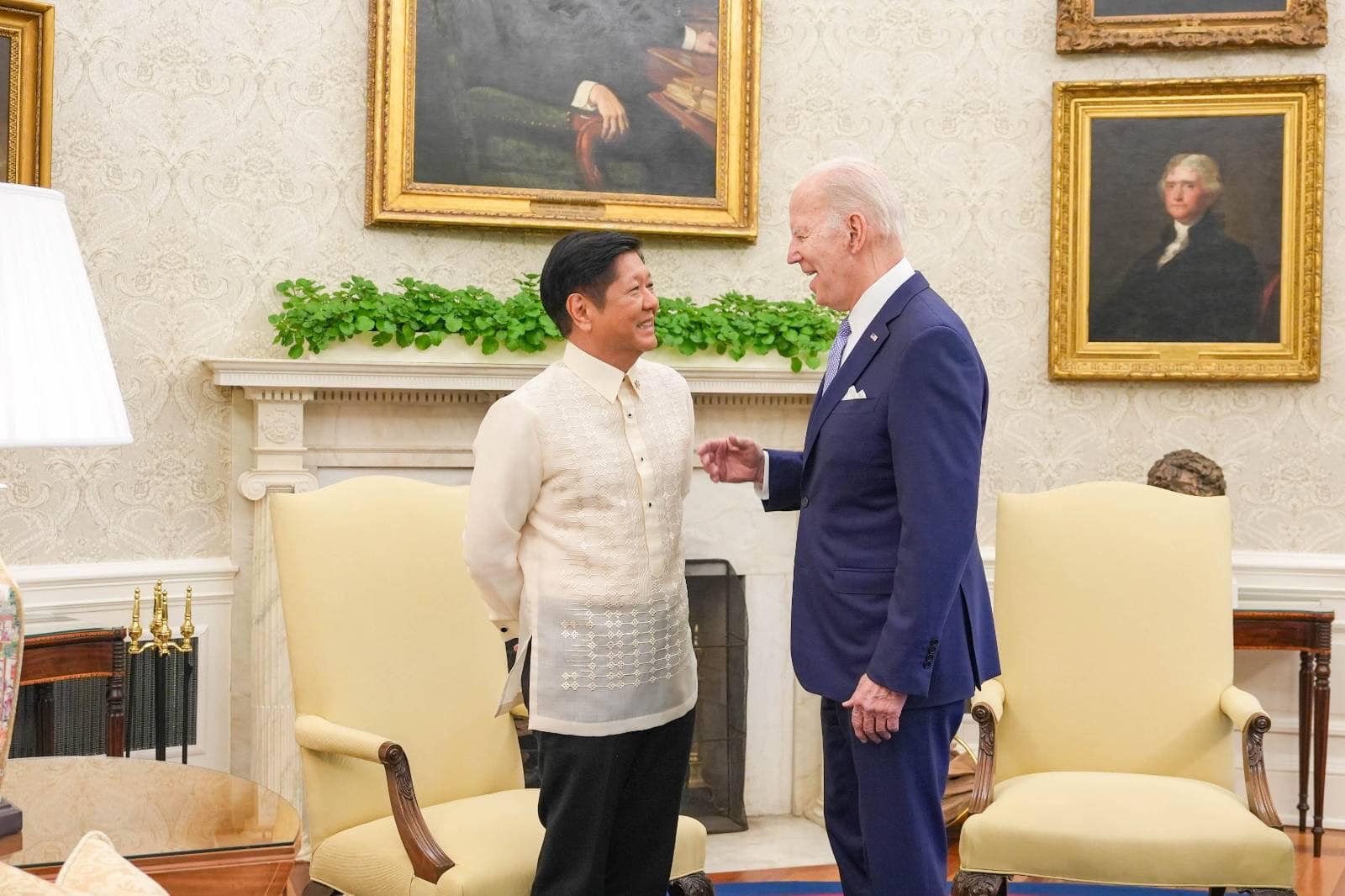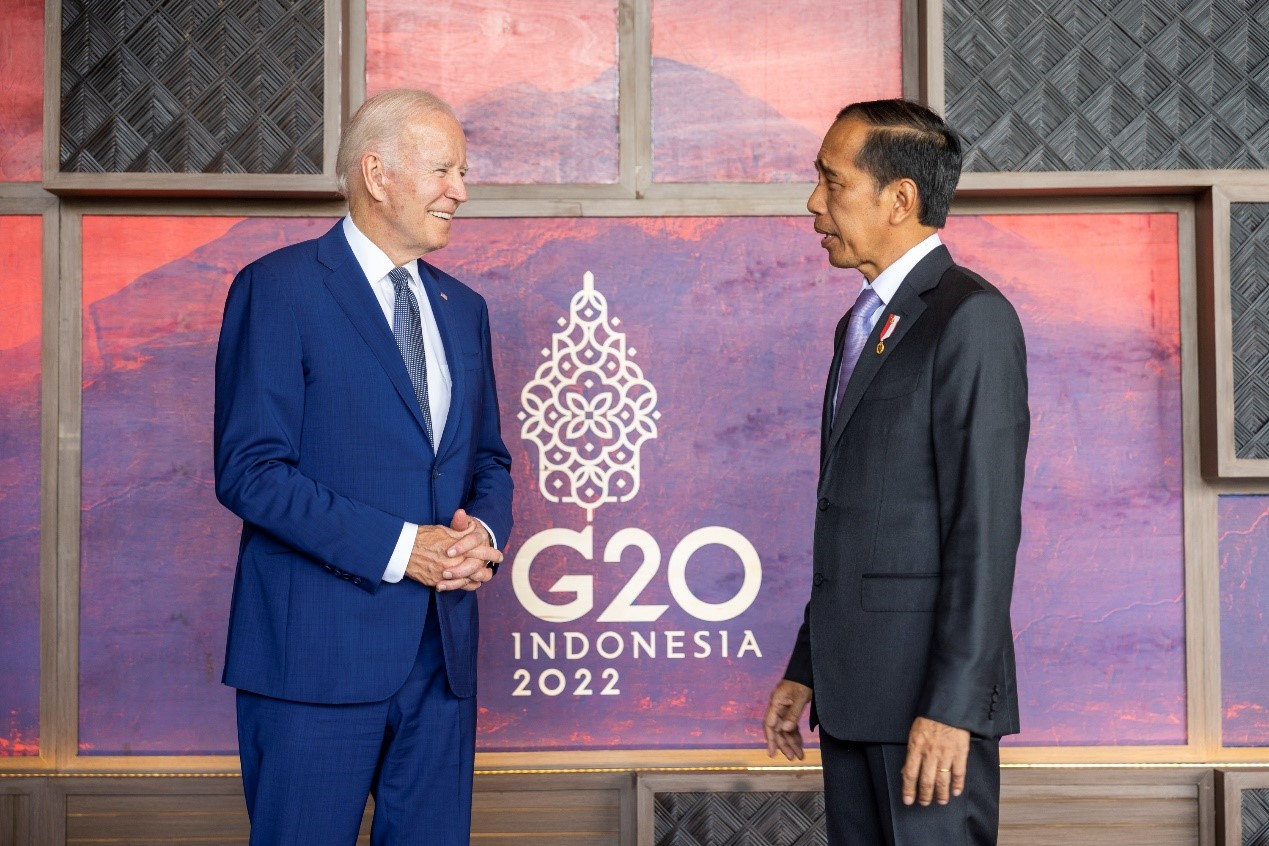Even though Biden and Xi reached an agreement on resuming military exchanges between the United States and China and jointly combating fentanyl imports, no senior military officials attended the summit. Biden and Xi did not hold a joint press conference after the summit; Biden said at his press conference after the summit that Xi is a dictator. Biden also cited security risks and announced new restrictions on American capital investment in companies linked to the Chinese military. Picture source: President Joe Biden, November 16, 2023, https://www.facebook.com/photo/?fbid=915770783883219&set=a.356649399795363.
The Biden-Xi San Francisco Summit
By Cheng-fung Lu
The face-to-face meeting between U.S. President Joe Biden and Chinese leader Xi Jinping in San Francisco, California, in November was the first time the two leaders met since the November 2022 summit in Bali, Indonesia. The war in Ukraine is slipping toward a stalemate and continuing conflict between Israel and Hamas could draw the U.S. into a regional war. Since the end of the COVID-19 pandemic, China’s economy has also encountered serious difficulties.
Both Washington and Beijing hope to convey to each other a message of stabilizing regional and global political and economic development. At the same time, Biden and Xi also highlighted their personal relationship. Biden also hosted a working lunch for Xi along with officials from China and the United States, and afterwards invited Xi to take a walk at the Filoli Estate.
One Summit, Two Different Goals
The Biden administration says the U.S. and China are engaged in strategic competition and hopes that China will act as a responsible strategic competitor. Xi maintains that competition between major powers cannot solve the problems facing China, the U.S. and the world. Xi also reiterated that the planet can accommodate both China and the United States, and that each country’s success is an opportunity for the other.
With the 2024 presidential elections in Taiwan and Biden seeking re-election, the global strategic competition between the U.S. and China could become more intense. Biden also stated that the United States will continue to invest to strength itself as well as global allies and partnership; the United States will continue to uphold its interests and values with its allies and partners; and that the United States and China should jointly and responsibly manage the competitive relationship to avoid conflict, confrontation, or a new Cold War. Xi also proposed five common themes to the United States: jointly establish a “correct understanding,” jointly manage differences effectively, jointly promote mutually beneficial cooperation, jointly shoulder the responsibilities of major countries, and jointly promote people-to-people and cultural exchanges. China also stated that the summit was “the compass” and “anchor” of relations between the two countries, while the United States is more pragmatic and believes that the summit is to provide a channel for dialogue and communication, and should establish thick guardrails.
The People’s Daily pointed out that during the summit, President Biden reiterated to China the five-point commitment he made at the Bali Summit last year: the United States does not seek a new Cold War, does not seek to change China’s system, does not seek to oppose China by strengthening alliances, does not support Taiwan’s independence, and has no intention of conflict with China. The United States hopes to establish guardrails in strategic competition through the leaders’ summit, and China hopes that the United States will continue to welcome and support an economically stronger China.
Promote Leadership Summits By Increasing Mutual Visits and Establishing Communication Channels
According to the conclusions reached by Biden and Xi at the Bali Summit, U.S. Secretary of State Antony Blinken was originally scheduled to make his first visit to China in February this year. However, China’s following the high-altitude balloon incident across the Pacific and intrusion into U.S. airspace, the United States’ attempts to contact China failed, and President Biden ordered the Air Force to shoot the device down. The relationship between the U.S. and China fell into deep distrust and more intense mutual accusations. It was not until mid-June that Blinken visited China and met with Xi in Beijing.
As Blinken was about to depart for Beijing, President Biden pointed out that Xi was deeply displeased with the U.S. shooting down the balloon. Biden also said that as a dictator, Xi did not know what the problem with the balloon was, which was very embarrassing matter. Prior to this, National Security Advisor Jake Sullivan and the Director of the Foreign Affairs Office of the Communist Party of China, Wang Yi, met in Austria in mid-May, and the Director of the Central Intelligence Agency, William Burns, also paid a secret visit to Beijing before Blinken’s visit. Wang has always accused the United States of seeking to derail Sino-U.S. relations.
Following Burns’ visit, several Biden administration cabinet ministers visited Beijing including: Treasury Secretary Janet Yellen, Commerce Secretary Gina Raimondo, and Climate Envoy John Kelly. Xi also met with the CEOs from large American companies, including Microsoft founder Bill Gates, Tesla founder Elon Musk, and Apple Chief Executive Officer Timothy Cook, among others. In addition, retired U.S. politicians including Henry Kissinger, as well as a delegation led by senior Senate leader Chuck Schumer and California Governor Gavin Newsom have also visited China this year.
After Taiwanese Vice President Lai Ching-te transited in the U.S. in mid-August, President Biden pointed out that China is facing difficulties in dealing with high unemployment and an aging workforce. Biden said that China’s economy was “a ticking time bomb in many cases,” adding that “they have got some problems, that’s not good, because when bad folks have problems they do bad things.” However, after Xi was absent from the G-20 Summit in mid-September, Sullivan met with Wang in Malta, a meeting that was intended as an attempt to responsibly maintain the relationship and maintain open lines communication. Biden spoke with Chinese Premier Li Qiang while in India at the G-20 summit, and told reporters afterward that they had talked about stability and that it was not confrontational at all. Chinese Vice President Han Zheng also went to New York to attend the United Nations General Assembly, along with Wang.
Conclusion
The Biden-Xi summit was deliberately scheduled to be held one day before the opening of the Asia-Pacific Economic Cooperation summit in San Francisco, highlighting the importance of U.S.-China relations. The summit was held after numerous rounds of negotiations throughout the year. Even though Biden and Xi reached an agreement on resuming military exchanges between the United States and China and jointly combating fentanyl imports, no senior military officials attended the summit; U.S. Defense Secretary Lloyd J. Austin III was at the ASEAN Defense Ministers’ Meeting Plus in Jakarta, Indonesia.
The United States and its Indo-Pacific allies have repeatedly expressed anger over China’s dangerous naval and air force operations in the Taiwan Strait, the South China Sea, and the East China Sea. They hope that China will exercise restraint and establish crisis communication and management mechanisms. Beijing maintains that such crisis management mechanisms are restrictions on China’s actions by Washington and Western countries. Before the Filoli Estate summit, the United States and China launched a dialogue on nuclear weapons security, and after the summit they also reached an agreement to resume military dialogue and high-level exchanges between the Chinese and American militaries, but the two sides did not set a clear date for the resumption of such exchanges. Biden and Xi did not hold a joint press conference after the summit; Biden said at his press conference after the summit that Xi is a dictator. Biden also cited security risks and announced new restrictions on American capital investment in companies linked to the Chinese military. Washington will ban some U.S. investment into China’s quantum computing, advanced semiconductors, and the AI sector.
(Dr. Lu is Associate Professor, Department of International and Mainland China Affairs, National Quemoy University.)

